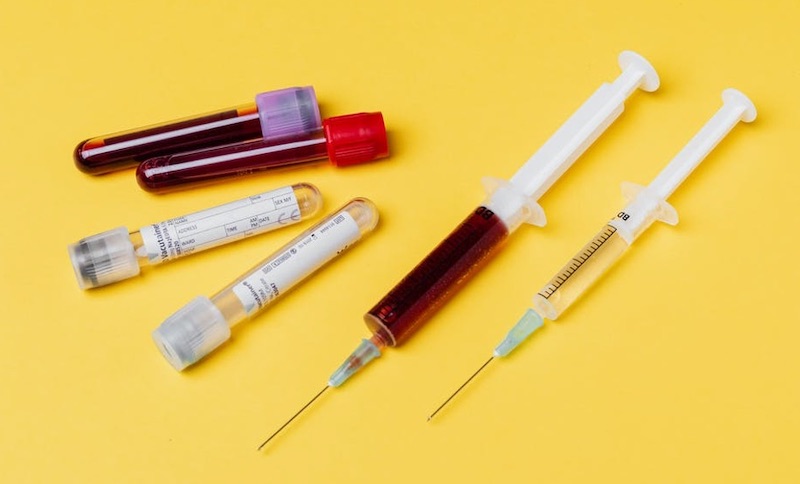How Bloodborne Pathogen Training Works for Businesses
![How Bloodborne Pathogen Training Works for Businesses [node:title]](/sites/default/files/styles/wide/public/man-woman-white-robes-ppe-tube-glass-blood-slide.jpg?itok=zWr2tDqY)
If you have a small business or a company and your employees are handling blood or other body fluids on the job, they need training on bloodborne pathogens.
But why do you need bloodborne pathogen training, and why should you care?
Bloodborne pathogens such as Hepatitis B, C, and even HIV can be spread through blood. If your employees are unaware of this and accidentally cut themselves on the job and then handle sterile equipment, you could spread diseases and suffer financially.
You can avoid that by implementing bloodborne pathogen training in the workplace.
How It Works

Bloodborne pathogen training covers the different types of tainted blood and how to handle them safely. Here’s an overview of what you learn and what bloodborne pathogen training entails…
1 - Engineering Controls
Engineering controls are objects installed in a workplace to control the exposure of contamination to workers from dangerous pathogens. These controls are an important part of any Bloodborne Pathogen Training Engineering Controls program.
Examples include sharps containers, puncture-resistant containers for waste, and air-handling systems that filter out airborne pathogens.
Engineering controls divert or eliminate the contact of hazardous material with employees and serve as barriers between the employee and the infectious agent.
2 - Personal Protective Equipment
Training in the use of Personal Protective Equipment (PPE) is of vital importance in any work that poses a risk from exposure to bloodborne pathogens. It’s worth emphasizing that PPE is essential in protecting workers from bloodborne pathogens (BBP).
All workers should be provided with appropriate and adequate training in selecting, using, and disposing of the appropriate PPE for the circumstances. This should cover the risks of exposure, types of PPE available, and methods of decontamination of used PPE.
3. Personal Hygiene
Personal hygiene is another important component of preventing contagion from bloodborne pathogens and maintaining a healthy body. It is essential that individuals in the workplace stay updated on the latest safety protocols as well as personal hygiene best practices, which is where bloodborne pathogen training for proper personal hygiene comes in handy.
This training as it relates to personal hygiene includes learning how to properly wash hands regularly, how to use disinfectants at work, and how to avoid contact with contaminated items.
4. Cleaning and Disinfecting
Cleaning and disinfecting are also an incredibly important part of ensuring the safety of healthcare environments.
Bloodborne pathogen training should be made available to anyone working in a healthcare environment to ensure the safety of both medical personnel and patients.
This training ensures that staff members understand how to properly disinfect and clean with appropriate products and how to handle and dispose of infectious materials.
5. Post-Exposure Evaluation and Follow-up
Postexposure evaluation and follow-up are important in regard to bloodborne pathogen training due to the fact that employers have a legal obligation to ensure the health of their workers.
This includes assessment of exposures that may have occurred during work and providing appropriate medical follow-up. This allows employers to accurately and appropriately evaluate exposures and determine the best course of action to keep employees safe.
Conclusion
Bloodborne pathogen training is an important way to keep yourself and those around you safe. The training aims to equip people with the tools and knowledge needed to protect themselves and those around them from serious risks and exposures.
Investing in proper training can be the difference between life and death. If you haven't done so already, now is the time to invest bloodborne pathogen training and perhaps earn your bloodborne pathogens certification online for enhance safety.



















